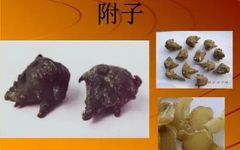Old Folk Remedies Collection aims to popularize health knowledge
Click below to follow for free↓↓↓
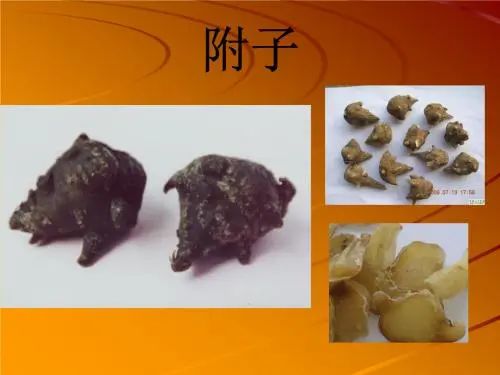
Traditional Chinese Medicine Aconite (Fu Zi): Properties: Pungent, Very Hot, Toxic.
Meridians: Enters the twelve meridians.
Functions: Revives Yang and tonifies fire, dispels cold and dampness.
Indications: Used for internal excess of Yin-cold, severe vomiting, diarrhea, and sweating, with cold limbs, Yang deficiency leading to collapse, and weak pulse on the verge of cessation. It is indicated for cold pain in the lower back and knees due to kidney Yang deficiency, chronic diarrhea due to spleen Yang deficiency, and conditions of cold and fear of cold, as well as wind-cold-damp bi syndrome.
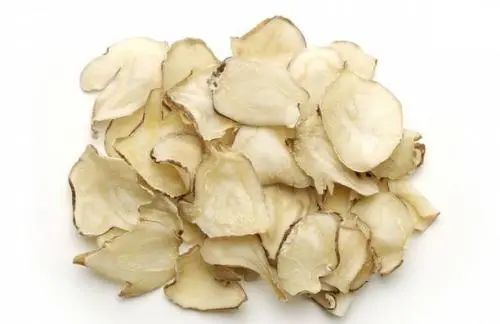
Clinical Applications: Aconite is suitable only for conditions of Yin deficiency and overall functional decline.
Reference indications for using Aconite include: 1. Deep, slow, weak, or thin pulse; 2. Fear of cold, cold extremities, and cold pain in the lower back and knees; 3. Clear, long urination, loose stools, and increased frequency indicating Yang deficiency diarrhea; 4. Pale complexion, pale lips, and a white, greasy tongue with a swollen body. Additionally, consider the following conditions: lower limb edema, drowsiness, and spontaneous sweating. Based on these basic symptoms, combine with other syndromes for appropriate compatibility.
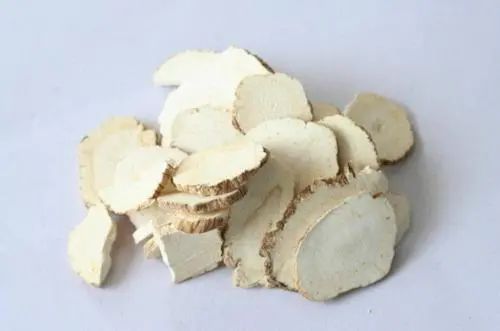
1. Treating Yin syndrome edema (Yin Shui). Any edema accompanied by symptoms of overall functional decline or failure is classified as Yin Shui, commonly seen in edema caused by chronic nephritis and heart failure. At this time, the patient exhibits significant symptoms of spleen and kidney Yang deficiency; simply using general diuretics will not resolve the issue, and Aconite and dried ginger must be added to warm the kidneys, dispel cold, warm the spleen, promote diuresis, and invigorate overall function (mainly blood circulation). Generally, Aconite and dried ginger can be added to Wu Ling San, or a warming Yang diuretic decoction can be used. If strengthening the spleen and promoting Qi is needed, combine dried ginger and Aconite with Bai Zhu (White Atractylodes), Gan Cao (Licorice), Hou Po (Magnolia Bark), and Mu Xiang (Aucklandia) to create Shi Pi Yin (a representative formula for treating Yin Shui). This formula is also applicable for cold-damp type ascites due to liver cirrhosis; after warming the kidneys with Aconite, it not only promotes diuresis but also significantly enhances appetite.
2. Treating Yang collapse and counterflow, i.e., shock and collapse, characterized by cold skin, weak breathing, cold extremities (where counterflow means cold but not warm), and a weak, fine pulse due to circulatory failure. Aconite, dried ginger, and Ren Shen (Ginseng) should be used to warm Yang and rescue from counterflow (strengthening the heart and resisting shock). For milder cases, use Aconite Decoction; for more severe cases, use Si Ni Decoction; for the most severe cases, use Shen Fu Decoction. If there is severe cold sweat, add Long Gu (Dragon Bone), Mu Li (Oyster Shell), and Wu Wei Zi (Schisandra) as well.
3. Treating Yang deficiency and decline, especially kidney Yang deficiency (insufficient Ming Men fire), with a constant feeling of cold in the lower body, cold and weak pain in the lower back and knees, cold pain in the lower abdomen with pulling pain, frequent urination, and a weak pulse. This is commonly seen in patients with chronic diseases or the elderly. At this time, it is advisable to add Aconite to tonics for faster results. Combine with Shan Yu Rou (Cornus), Shu Di Huang (Rehmannia), such as in the formula Fu Gui Ba Wei Wan, or combine with Du Zhong (Eucommia), Gou Qi Zi (Goji Berries), and Huai Shan (Chinese Yam), as in You Gui Yin.
4. Treating wind-cold-damp bi syndrome, especially in cases of wind-damp arthritis with predominant cold symptoms, significant pain that worsens with cold and improves with warmth, often accompanied by fear of cold, cold limbs, white tongue coating, and thin, wiry pulse. Aconite can be combined with Gui Zhi (Cinnamon Twig), as in Gui Zhi Jia Fu Zi Tang.
5. Treating cold abdominal pain. Abdominal pain due to spleen and kidney Yang deficiency, with bowel sounds, stomach pain, vomiting clear water or phlegm, loose stools or diarrhea, cold hands and feet, and thin, wiry pulse (can be seen in ulcer disease, gastrointestinal neurosis, chronic colitis, etc.), can be treated with Aconite combined with dried ginger, Dang Shen (Codonopsis), and Bai Zhu, as in the formula Aconite Li Zhong Tang. Additionally, Aconite can be used to warm and transform cold phlegm. If phlegm is in the lungs with severe cold symptoms, often feeling cold in the back and experiencing cold asthma (such as bronchial asthma or certain types of chronic bronchitis), in addition to using Ma Huang (Ephedra), Wu Wei Zi, and Ban Xia (Pinellia), sometimes Aconite is also added to warm the kidneys.
Precautions for Use:
1. Avoid use in cases of Yin deficiency and heat syndrome. Those with any of the following conditions should not use Aconite: 1. Pulse is full, rapid, or large; 2. Loose stools with heat; 3. High fever; 4. Internal heat with external cold, true heat with false cold; the above four conditions belong to heat syndrome. If Aconite is used inappropriately, it is like adding fuel to the fire, leading to increased symptoms such as bleeding from the mouth and nose, and even convulsions; 5. Patients with heart disease showing atrioventricular block should also avoid Aconite. General contraindications apply.
2. Aconite should be used cooked. Raw Aconite is toxic and should not be used. Aconite boiled for more than one hour reduces its cardiac toxicity, but its heart-strengthening effect remains. Therefore, any decoction containing Aconite must be simmered for at least one hour.
3. Symptoms of Aconite poisoning include numbness of the limbs (starting from the fingers), dizziness, weakness, sweating, salivation, nausea, and in more severe cases, palpitations, arrhythmia, low blood pressure, convulsions, and coma. For mild cases, general treatment such as gastric lavage and warmth is sufficient; for more severe cases, atropine injection is required. Traditional Chinese medicine such as Sheng Jiang (Fresh Ginger) 120g, Gan Cao 15g, decocted in water, or 90-120g of green beans, concentrated decoction, has certain detoxifying effects for mild poisoning patients.
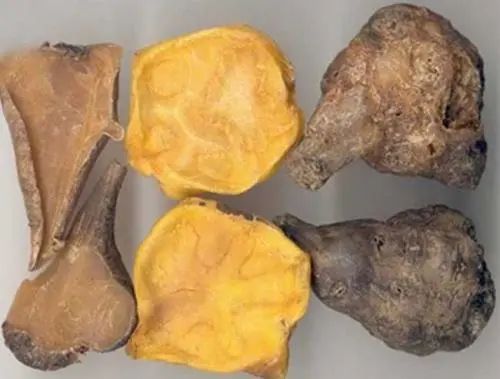
Health Experience Talks aims to popularize health knowledge
Click below to follow for free↓↓↓
Editor shares good articles with friends
1. A simple herb infusion can tonify lung Qi, spleen Qi, and kidney Qi, boosting immunity
2. Waking up naturally between 3-5 AM? Caused by lung Qi deficiency, refer to these three herbs to tonify lung Qi and improve insomnia
3. So precious! Over 800 folk remedies, no illness cannot be treated, save for future use!
4. The most comprehensive collection of Tui Na techniques videos—those wanting to learn Tui Na massage should save quickly!
Like is a form of encouragement Share to spread joy

